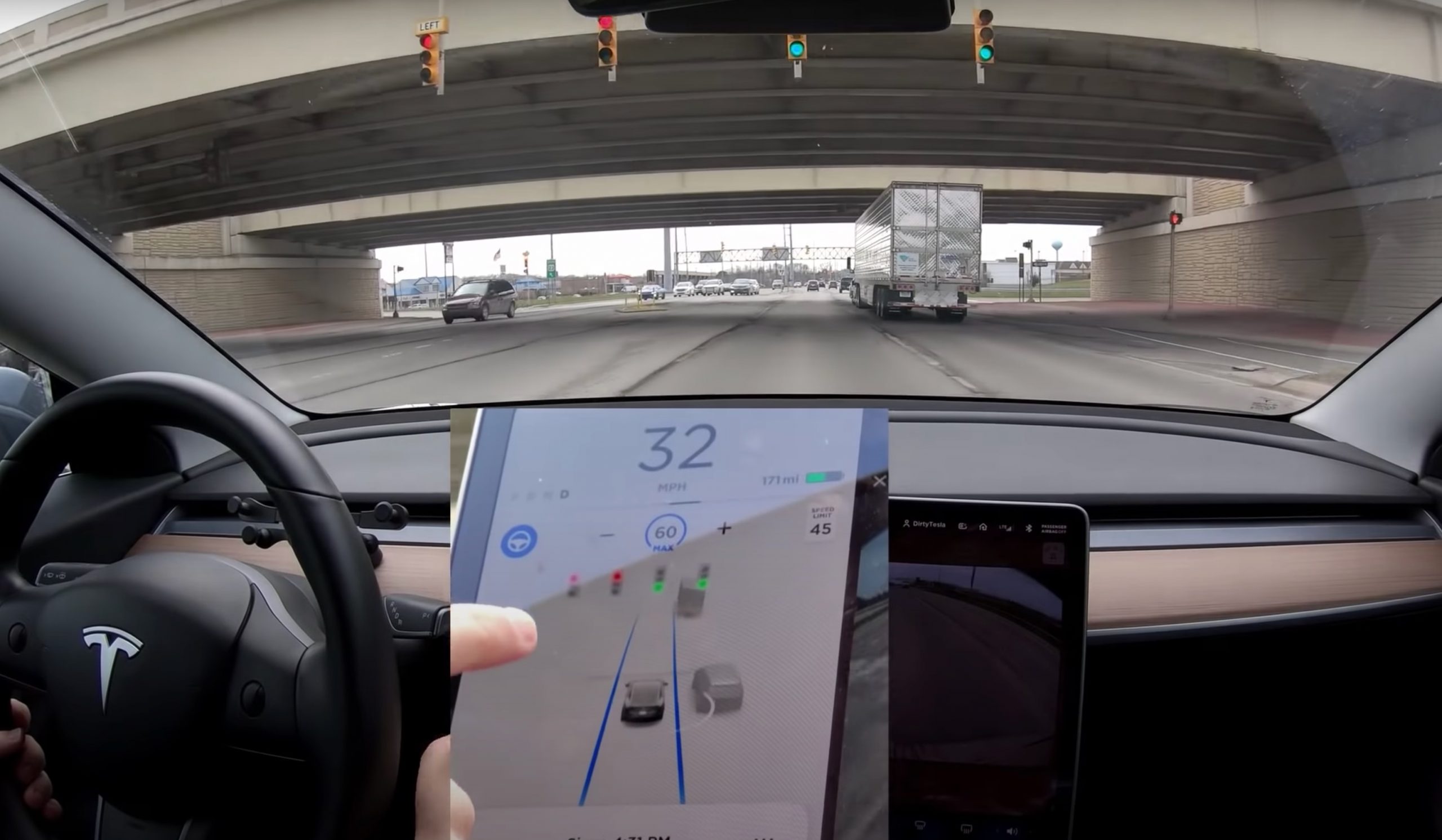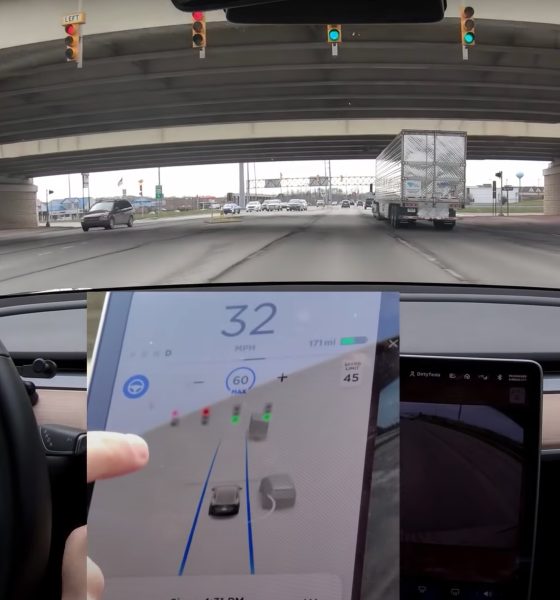Following Teslarati’s report that Tesla has removed green light confirmation from its Traffic Light and Stop Sign Control feature (release notes), we now have a first look at the Autopilot characteristic in action.
A video shared by Tesla Model 3 owner mouser58907 shows his vehicle navigating through green lights without having to confirm that it is safe to travel through the intersection. The function needs to be trailing another vehicle not to need confirmation from the driver. Tesla is calling the feature “Go on Green.”
The initial rollout of the function required drivers to confirm navigation through green lights by either pressing the driver’s stalk or lightly pressing the accelerator pedal. Tesla noted that the confirmation process was a precaution as the capabilities of the new function would ease drivers into using the feature, while also testing its effectiveness.
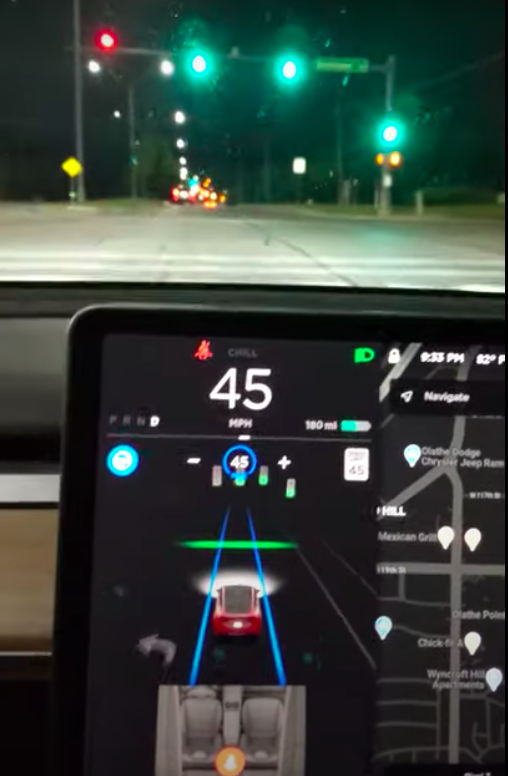
The rollout of Software Update 2020.24.6 no longer requires drivers using FSD with Hardware 3 to confirm explicitly that the intersection is safe to travel through. The release notes for the feature describe the improvements Tesla has made since rolling out the first versions of Traffic Light and Stop Sign Control in April.
“The Traffic Light and Stop Sign Control feature no longer requires explicit driver confirmation of pushing down the gear selector to continue straight through an intersection for green lights when there is a lead vehicle ahead of you. The stop line in the driving visualization will now turn green to indicate the car will continue through an intersection.
Please continue to pay attention and be ready to take immediate action, including braking because this feature may not stop for all traffic controls. This feature will not attempt to turn through intersections but over this, as we continue to learn from the fleet, the feature will control more naturally.”
The feature is currently only available in U.S. markets, but CEO Elon Musk indicated earlier this year that international rollouts would begin in Q3. Autopilot and Self-Driving functions are usually released in International markets later than the U.S. because driving laws vary from country to country. Musk explicitly stated that getting the software right was a priority. “Very important to make sure this is done right,” the Tesla CEO said.
Tesla is moving closer to a “feature-complete” Full Self-Driving rollout with the removal of driver confirmation when the Traffic Light and Stop Sign Control characteristic is being used. Currently, Tesla is only missing the “inner-city-driving” portion of the FSD suite, which will rely heavily on navigating through traffic lights and stop signs safely.
Watch mouser58907’s video on Traffic Light and Stop Sign Control “Go on Green” below.

Elon Musk
Elon Musk just said some crazy stuff about the Tesla Roadster
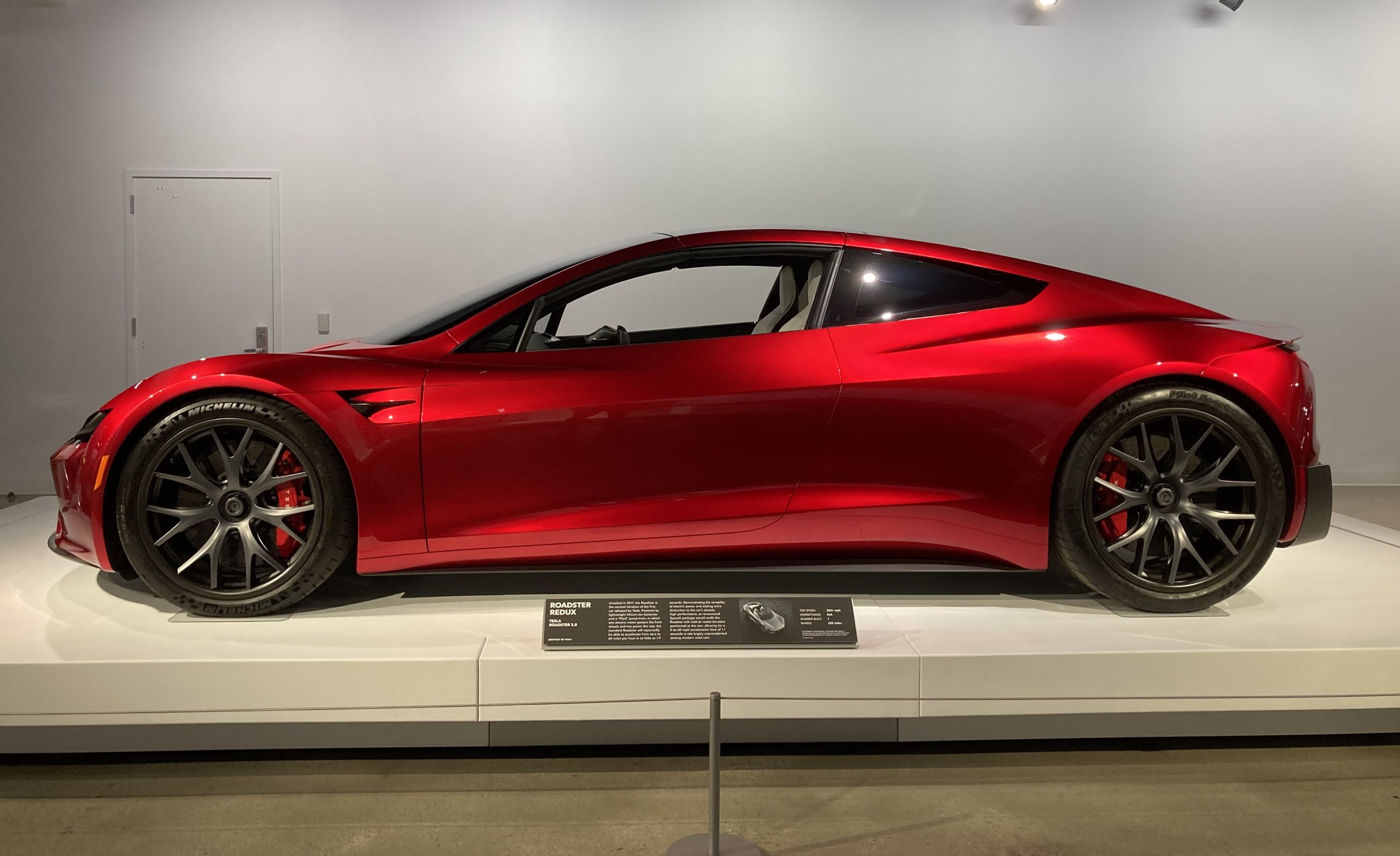
Elon Musk appeared on the Moonshots podcast with Peter Diamandis today to discuss AGI, U.S. vs. China, Tesla, and some other interesting topics, but there was some discussion about the upcoming unveiling of the Roadster, the company’s electric supercar that will arrive several years after it was initially slated for release.
Musk made some pretty amazing claims about the Roadster; we already know it is supposed to be lightning-fast and could even hover, if Tesla gets everything to happen the way it wants to. However, the car has some pretty crazy capabilities, some of which have not even been revealed.
On the podcast, Musk said:
“This is not a…safety is not the main goal. If you buy a Ferrari, safety is not the number one goal. I say, if safety is your number one goal, do not buy the Roadster…We’ll aspire not to kill anyone in this car. It’ll be the best of the last of the human-driven cars. The best of the last.”
🚨 Elon on the Roadster unveiling, scheduled for April 1:
— TESLARATI (@Teslarati) January 6, 2026
Musk makes a good point: people who buy expensive sports cars with ridiculous top speeds and acceleration rates do not buy them to be safe. They hope they are safe in case of an emergency or crash, but safety is not at the forefront of their thoughts, because nobody buys a car thinking they’ll crash it.
The Roadster is truly going to push the limits and capabilities of passenger vehicles; there’s no doubt about that. Tesla plans to show off the new version car for the first time on April 1, and Musk has only hinted at what is possible with it.
Musk said back in November:
“Whether it’s good or bad, it will be unforgettable. My friend Peter Thiel once reflected that the future was supposed to have flying cars, but we don’t have flying cars. I think if Peter wants a flying car, he should be able to buy one…I think it has a shot at being the most memorable product unveiling ever. [It will be unveiled] hopefully before the end of the year. You know, we need to make sure that it works. This is some crazy technology in this car. Let’s just put it this way: if you took all the James Bond cars and combined them, it’s crazier than that.”
Production is set to begin between 12 and 18 months after the unveiling, which would put the car out sometime in 2027. Hopefully, Tesla is able to stay on track with the scheduling of the Roadster; many people have been waiting a long time for it.
News
Tesla launches hiring for Robotaxi program in its twentieth country
Overall, the hiring signals Tesla’s aggressive timeline for global dominance in autonomous mobility.
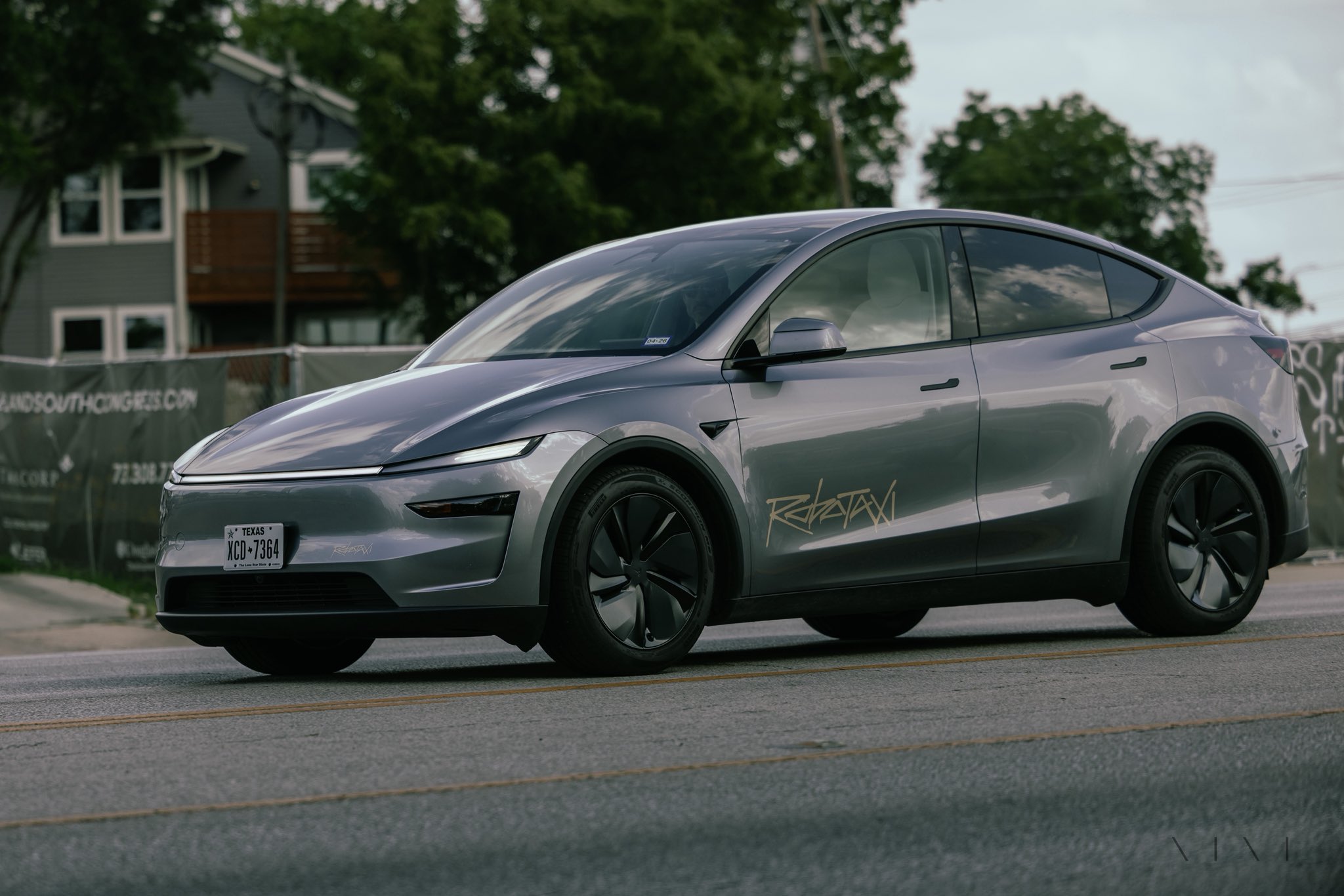
Tesla has launched a hiring initiative for its Robotaxi program in its twentieth country, as the company posted two new jobs in Thailand this week.
Tesla is hiring in Bangkok and Kowloon for the Vehicle Operator position, which is related to data collection, and is the first in Thailand, but the twentieth country overall, as the company tries to expand into other markets.
🚨 BREAKING: Tesla is hiring additional full-time Vehicle Operators in Bangkok, Thailand.
Previous openings were 6-month, part-time roles. These are equivalent to AI Safety Operator roles in the U.S. pic.twitter.com/R6LzoU1bos— Tesla Yoda (@teslayoda) January 5, 2026
Tesla has had active job postings for Vehicle Operator positions in the United States, India, Israel, Taiwan, Germany, the Czech Republic, Hungary, the UK, Finland, Switzerland, Sweden, the Netherlands, Austria, Spain, Norway, Italy, and Turkey in past listings.
These postings are not all currently available, likely because the roles have been filled.
Thailand is the most recent, and broadens the company’s potential path to expanding its ride-hailing program, which is only active in the United States in Austin, Texas, and the California Bay Area, so far.
These roles typically involve data collection, which assists in improving Autopilot and Full Self-Driving operation. Tesla’s self-driving programs utilize real-world data that is accumulated and stored, observing vehicle and traffic behavior, as well as tendencies that are performed by human drivers to help increase safety and overall performance.
Overall, the hiring signals Tesla’s aggressive timeline for global dominance in autonomous mobility. Although the company has several high-profile rivals and competitors in the field, it has established itself as a main player and a leader in the development of autonomous technology, especially in the U.S., as its FSD suite is refined on almost a weekly basis.
The Full Self-Driving suite is available in seven countries and territories currently, including the U.S., Canada, China, Mexico, Puerto Rico, Australia, and New Zealand. Its biggest goal for expansion is currently the European market, where regulatory hurdles have been the main bottleneck prolonging its launch on the continent.
Tesla has performed months of testing in various European countries, including France and Spain, and does have support in some areas from various regulatory agencies. However, the company is hoping to get through this red tape and offer its suite in Europe for the first time, hopefully this year.
News
Tesla China rolls out Model Y upgrades, launches low-interest financing
These strategies are aimed at improving the ownership experience and keeping vehicle pricing competitive in the world’s largest electric vehicle market.
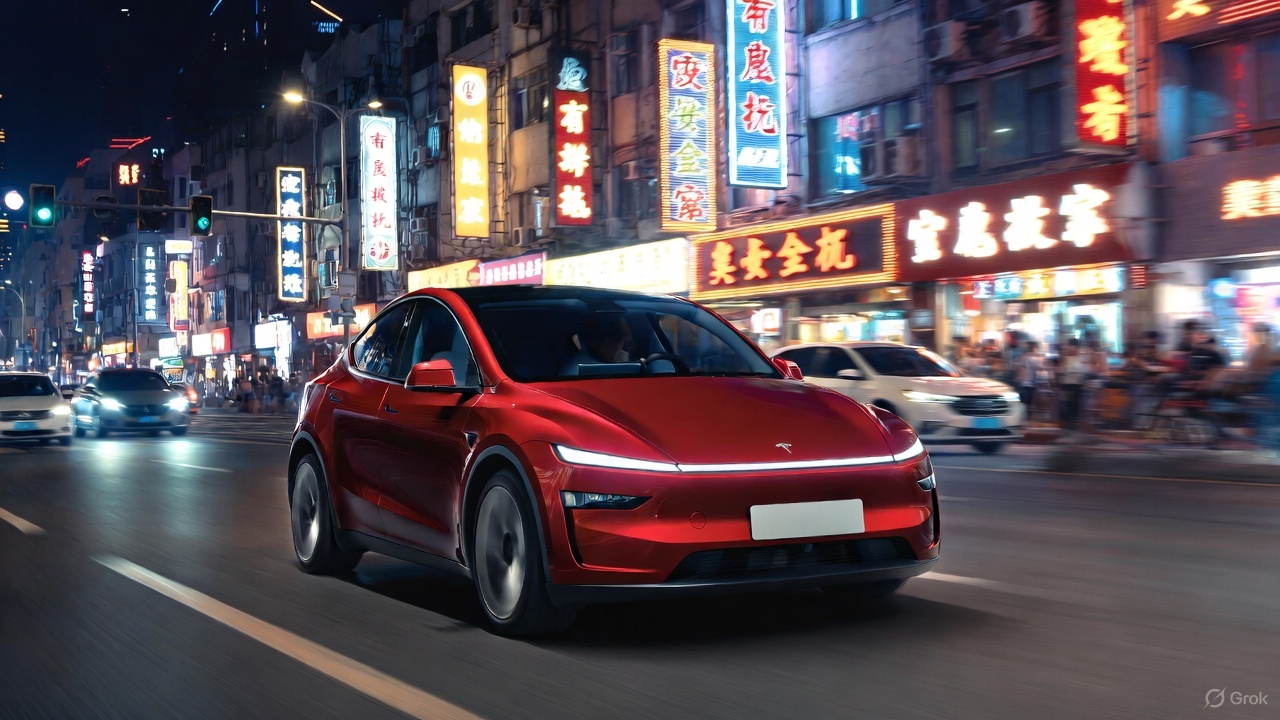
Tesla has rolled out minor updates to the five-seat Model Y in China, upgrading the vehicle’s center display to a higher-resolution 16-inch 2K screen. The electric vehicle maker also introduced attractive financing options, including 7-year low-interest rates, to offset the new purchase tax on EVs.
These strategies are aimed at improving the ownership experience and keeping vehicle pricing competitive in the world’s largest electric vehicle market.
Five-seat Model Y gets larger, better display
With its recent update, all three variants of the five-seat Model Y now feature an upgraded 16-inch 2K resolution center display, which replaces the vehicle’s previous 15.4-inch 1080p panel. This screen was already used in the six-seat Model Y L, and it offered improved visual clarity. Tesla China has also updated the Model Y’s headliner to black, giving the vehicle a sleeker appearance.
Prices of the five-seat Model Y remain unchanged at RMB 263,500, RMB 288,500, and RMB 313,500 for the respective trims. This update enhances the cabin experience as domestic rivals are already adopting high-resolution screens. As noted in a CNEV Post report, some domestic automakers have begun rolling out vehicles equipped with 3K-resolution displays.
New financing offers
Tesla also launched ultra-long-term financing offers for its locally produced models in China, which include the Model 3 sedan, the five-seat Model Y, and the six-seat Model Y L, through January 31, 2026. The 7-year option features an annualized fee rate as low as 0.5%, which is equivalent to 0.98% interest. This is expected to save customers up to RMB 33,479 ($4,790) compared to standard rates.
A 5-year zero-interest plan is also available, and it has been extended to the Tesla Model Y L for the first time. These incentives help offset China’s new 5% purchase tax on New Energy Vehicles (NEVs) in 2026-2027. Some of Tesla’s rivals in China have announced in recent months that they would be covering the purchase tax owed by buyers early this year.
